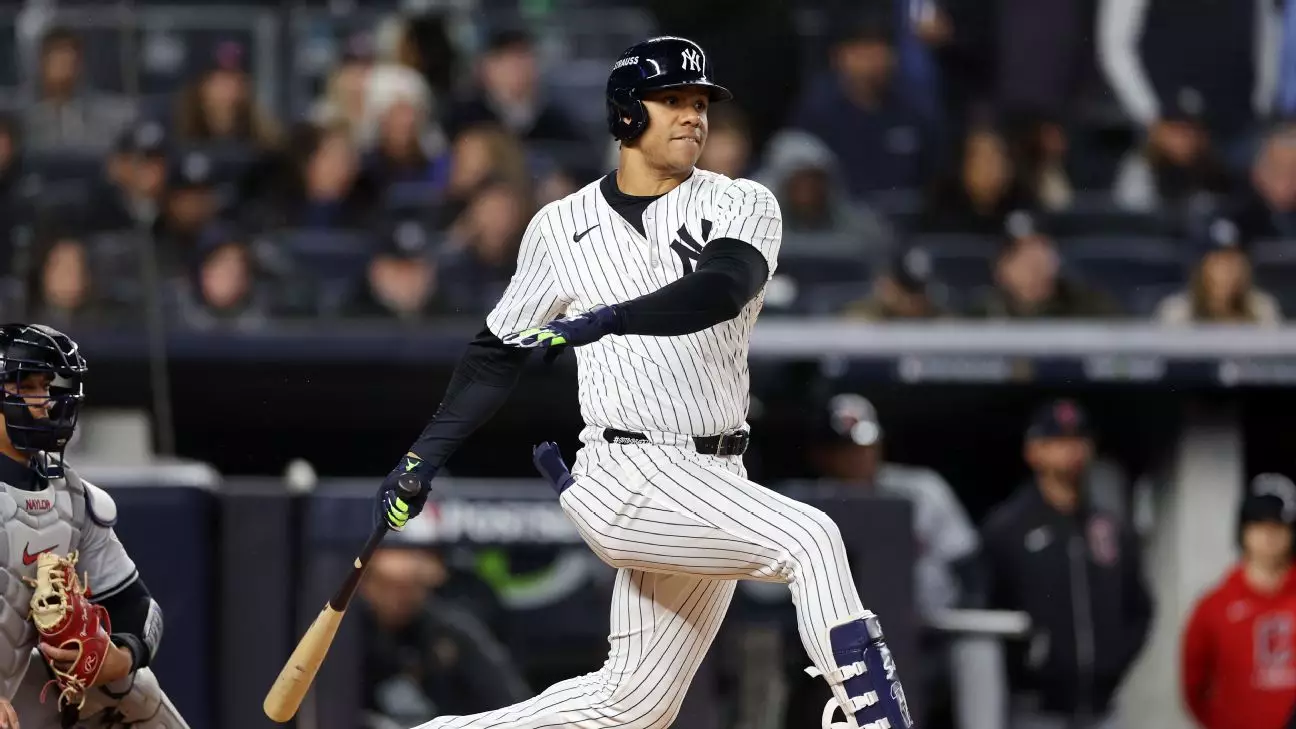As Major League Baseball’s free agency period heats up, one player’s name echoes louder than others: Juan Soto. The 26-year-old outfielder, who showcased his prowess during his stint with the New York Yankees in 2024, is poised to enter what is expected to be a historic free agency period. His agent, Scott Boras, is known for his meticulous negotiation skills, and this situation is no exception. Soto is not interested in rushing into a contract; instead, he intends to take a comprehensive approach before committing to a new team. This stance reflects both the current climate of the league and Soto’s own ambitions for success.
Soto’s decision to delay his signing comes from a place of strategic thoughtfulness. He aims to meet with multiple teams, including ownership, to gain insight into their vision for the future. According to Boras, this process is essential. “He wants to hear from them,” he explains. This desire for engagement indicates that Soto is not merely after a financial windfall; he seeks to align himself with an organization that shares his aspirations for consistent competitiveness and victory. This puts pressure on the teams to not only showcase their financial capability but also their long-term vision for success.
The Yankees, who benefited from Soto’s incredible impact—launching 41 home runs and boasting a league-leading 128 runs scored—may seem like a natural fit for Soto’s talents. Yet, Boras suggests that previous achievements do not guarantee an advantage in this competitive landscape. Soto is looking for a commitment from ownership that transcends past successes, seeking assurance that they can replicate such triumphs in the years to come.
One of the pivotal aspects of Soto’s free agency is his age. At 26, he stands in a unique position compared to other high-profile free agents. Boras emphasizes this disparity, stating that Soto’s age offers teams a long-term investment opportunity—something less prevalent with older players such as Shohei Ohtani. This age factor could result in Soto securing one of the largest contracts in MLB history, potentially second only to Ohtani’s monumental deal with the Los Angeles Dodgers.
Soto’s age not only influences the contract size but also teams’ willingness to engage, as they view him as a player who can impact the franchise for years to come. In contrast, older players might be seen as short-term solutions. Teams will be keen to pitch their strategies and prove to Soto that their plans align with his ambitions.
The current landscape of MLB includes several big-market teams—like the San Francisco Giants and Toronto Blue Jays—eager to engage in the bidding for Soto’s services. Given the stiff competition, Boras’ strategy will be vital. He has experience navigating the extra layers added by competitive balance tax implications but clarified that the potential financial repercussions will not deter teams from pursuing a marquee talent like Soto.
Boras recognizes that acquiring a player of Soto’s caliber could transform a team’s fortunes, and no team will want to miss the opportunity for a player who has demonstrated his talent in crucial playoff scenarios—a player with experience and recognition that can elevate the entire franchise.
As Juan Soto embarks on this pivotal chapter of his career, his careful and considered approach raises the stakes for teams eager to sign him. His desire to know ownership and truly understand the franchise’s vision indicates a shift in player agency during free agency. For Soto, this is not merely about securing a lucrative contract; it is about choosing the right environment for sustained success.
With Boras at his side, Soto’s story is only beginning, and the coming weeks will undoubtedly be filled with intrigue. However, one thing is clear: Soto is committed to making a decision that aligns not just with financial figures but also with his long-term aspirations in the sport, illustrating a new age of athlete empowerment in baseball.


Leave a Reply